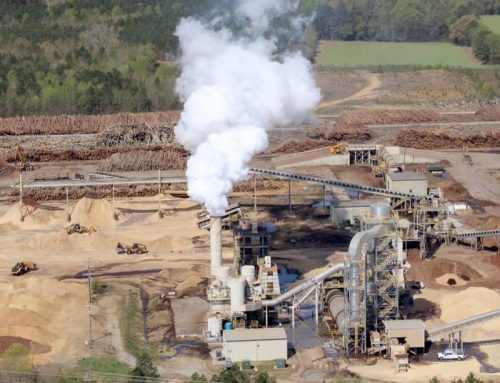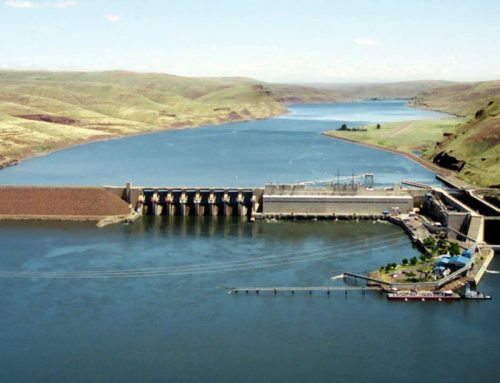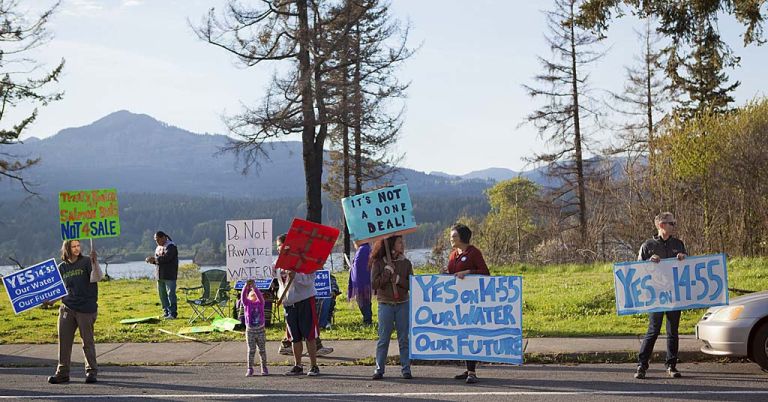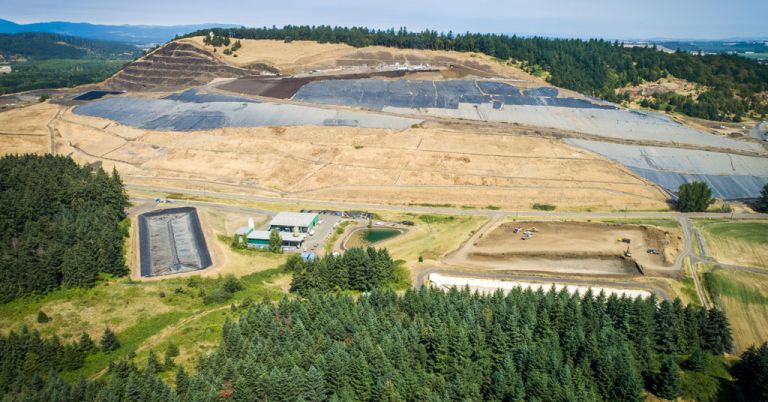
Terminal situation: Jordan Cove (left foreground) on Coos Bay’s North Spit remains under dispute as the end point of a planned LNG pipeline proposed by Canadian corporation Pembina. Photo by Rena J. Olson, with support from Lighthawk
By Carisa Cegavske, The News-Review, June 1, 2020. A group of landowners is taking the Federal Energy Regulatory Commission to court over a controversial proposal to build a natural gas pipeline and liquefaction plant at Jordan Cove in Southern Oregon.
FERC approved a permit for the project in March, and in May denied opponents’ request for a rehearing.
On May 27, Pacific Connector Pipeline opponents—including many landowners whose properties the project would cross—challenged FERC’s decision by filing a joint petition for review in the U.S. Court of Appeals for the District of Columbia.
Landowner Stacey McLaughlin of Myrtle Creek, one of the petitioners in the lawsuit, told The News-Review on Tuesday she believes FERC did not follow the law when it rejected the request for a rehearing.
“I am hopeful that the rule of law is not dead in this country, and the court will see this for what it is,” she said.
The project involves creating a 36-inch pipeline that would cross 229 miles in four southwestern Oregon counties, including Douglas County, to transport natural gas to a Jordan Cove liquefaction plant in Coos Bay. From there, the gas would be loaded onto ships for export to Asian markets.
McLaughlin said Canadian developer Pembina hasn’t shown there’s a market for the gas, so it doesn’t make sense the company is pushing forward with the project.
She said the FERC decision, if it stands, would allow Pembina to use eminent domain to take her property even without the required state permits.
She said it’s a hardship on the landowners to fight the decision when many are struggling financially due to the economic impact of the COVID-19 pandemic.
The landowners are represented by Washington, D.C.-based Niskanen Center, a think tank that supports environmental and civil rights causes.
Niskanen attorney Megan Gibson said in a press release that the petition was filed on behalf of affected landowners to challenge what she said was FERC’s misuse of its powers to approve the project.
FERC had previously twice denied permits to the project, and she said it should have been denied again.
“FERC is authorizing a foreign company to take our citizens’ land for foreign profit. There is no legitimate public use of this project, which will destroy many landowners’ properties, as well as the environment. It is our hope that the courts will see through the facade of alleged public use used by FERC and put a final end to the project,” she said.
Columbia Insight is publishing this story as part of the AP StoryShare program, which allows newsrooms and publishing partners to republish each other’s stories and photos.











